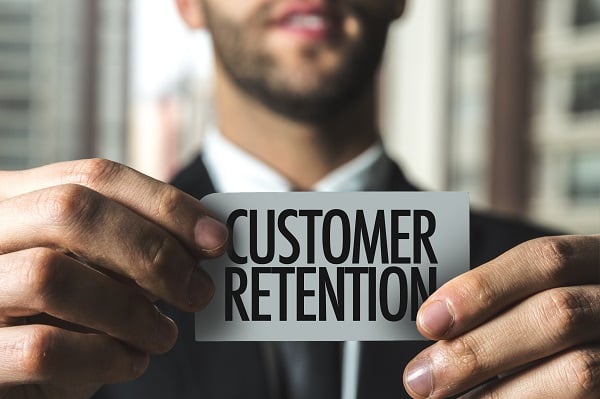In today's digital age, webinars have emerged as a powerful tool for B2B companies to engage with prospects, nurture relationships, and ultimately drive sales.
A well-executed webinar can serve as a high-value lead generation mechanism, offering businesses the opportunity to showcase their expertise, build trust, and capture qualified leads.
This blog post series explores the benefits of hosting webinars for B2B sales, outlines the key actions required for successful webinar execution, and highlights the best platforms to consider for your next webinar.
In this first of three blog posts on the topic, I will take you through the key questions that you need to address before getting started.
In the second blog post I will talk in more detail about how to maximise the attendance levels for your webinar including a webinar checklist based on my experience.
In the third post I will share some follow up strategies designed to help you get the most out of your webinar investment.
The 3 marketing benefits of hosting a webinar
Despite webinars having been around for a long time. I often get asked if hosting webinars is relevant to the lead generation process.
I think there are 3 distinct marketing benefits from spending time and effort on a webinar programme. They are:
- Lead generation – each new registration for your webinar is, at the very least, a prospect with an email address that you can nurture through your marketing funnel. Each registrant is a prospective buyer expressing an interest in your products and services. Your challenge is to identify where they are in the buying cycle and to help them move towards a purchase.
- Engagement – dreadful marketing phrase, but I can’t think of a better word. A webinar allows you to put your best storytellers and presenters in front of your target market quickly and cost effectively. Your target audience gets to see the people behind the website / emails / social media because after all, people buy from people.
- Content – everyone’s marketing budget is being squeezed. Repurposing webinar content is a great use of all that marketing effort. For example, you can create highlight clips for social media posts, write a blog post on the webinar topic, add the webinar recording to your website and put an email gate on it for ongoing lead generation and SEO benefits.
Webinar research data
Don’t just take my word for it, let’s look at some recent research data on the topic.
According to recent figures released by Zoom (https://www.zoom.com/en/blog/webinar-statistics/), 2 out of 3 organisations host webinars but 75% of those companies host less than 20 a year. So, whilst there are plenty of webinars being run in your industry sector, there is a lot of room for a new entrant.
73% of B2B companies that host webinars say webinars are the best way to generate high-quality leads.
The other key piece of data is that the average webinar cost per lead is £55. This compares favourable when measured against other in-bound activities such as PPC @ $132; email marketing at $38 and content marketing at $72.
Source: https://sopro.io/resources/blog/b2b-cost-per-lead-benchmarks/
How does this data stack up against your average cost per lead?
The 7 key factors to webinar success
Before you embark on launching your webinar programme, there are some key factors that you need to consider. Failure to address these seven areas will result in a less successful campaign.
Over the years, I have found that addressing these 7 key questions is the best foundation to a successful programme.
- What Specific Goals Should We Set for Our Webinars?
- How many leads do you need to generate per webinar?
- What conversion rates from registrants to attendees, and attendees to qualified leads do you need?
- Do you have any historical data that can be used as a benchmark?
- Who Should Our Target Audience Be for These Webinars?
- Which segments of our customer base or prospects would benefit most from our webinars?
- How do we ensure we’re attracting the right decision-makers?
- What Topics Will Resonate Most with Our Target Audience?
- How do we identify the pain points and challenges our audience faces that we can address through webinars?
- What content will position us as thought leaders and build trust?
- How Should We Promote the Webinars to Maximize Attendance?
- Which channels (email, social media, partnerships, etc.) should we use to drive registrations?
- How far in advance should we start promoting the webinars, and what should our communication strategy be?
- What is the best day to hold the webinar.
- What Technology and Tools Will We Need?
- Which webinar platforms would be best for our needs, considering factors like audience size, engagement features, and integration with our CRM?
- How do we ensure a smooth and professional experience for both presenters and attendees?
- What can we do to increase audience participation during the webinar?
- How Do We Measure the Success of Our Webinars?
- What metrics should we track (e.g., attendance rate, engagement, lead quality, sales conversions)?
- How will we gather and analyse feedback from attendees to improve future webinars?
- What Follow-Up Strategy Should We Implement Post-Webinar?
- How should we nurture leads after the webinar to keep them engaged?
- What role should the sales team play in following up with attendees, and how should we prioritize leads?
These questions will help you and your CMO develop a comprehensive strategy to effectively use webinars for generating qualified sales leads.
Conclusion
Webinars are a highly effective tool for B2B companies looking to generate leads, build relationships, and drive sales. By hosting webinars, businesses can position themselves as industry experts, engage with a targeted audience, and create valuable content that can be repurposed across multiple channels. To ensure success, it’s essential to define clear objectives, create compelling content, and select the right platform for your needs. With the right strategy in place, webinars can become a cornerstone of your B2B marketing efforts, delivering measurable results and a steady stream of qualified leads.



-1.png?width=800&height=500&name=Expert%20View%20(1)-1.png)
